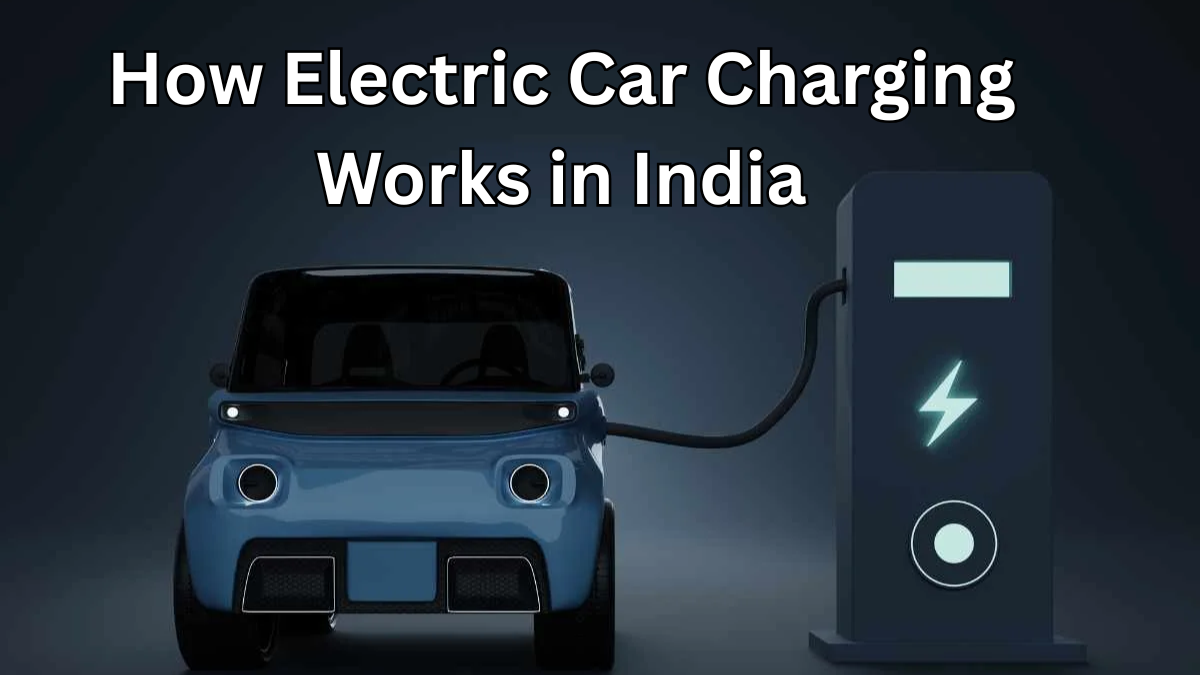With India rapidly shifting towards sustainable transportation, electric vehicles (EVs) are no longer a futuristic dream—they’re becoming the norm. But if you’re considering switching to an EV or already own one, it’s important to understand how electric car charging works in India. Let’s simplify the difference between fast and slow charging, explore EV charger types, and clear up the confusion around home vs public stations.

Why Charging Knowledge Matters for EV Owners
Just like petrol or diesel vehicles need refueling, electric vehicles need recharging. But unlike fuel pumps, EV charging comes with different speeds and types of chargers—each suited for different needs.
Knowing how electric car charging works in India will help you:
-
Choose the right EV charger for your home
-
Save time at public stations
-
Maintain battery health and efficiency
-
Optimize costs and convenience
EV Charger Types in India
India currently offers a range of EV charger types, mainly classified into slow (AC) and fast (DC) chargers.
Here’s a quick breakdown:
| Charger Type | Speed | Ideal For | Charging Time | Power Output |
|---|---|---|---|---|
| AC Slow Charger | Slow | Home charging | 6–12 hours (approx.) | 3.3–7.4 kW |
| DC Fast Charger | Very Fast | Public stations | 30–90 mins (approx.) | 15–150 kW or more |
Home vs Public Stations: What’s Best for You?
Whether you should charge your EV at home or rely on public charging stations depends on your daily commute, car model, and lifestyle.
Home Charging
Perfect for overnight top-ups, especially if your EV supports AC slow charging.
Benefits:
-
Convenient and private
-
Cost-effective in the long run
-
Ideal for regular overnight charging
Limitations:
-
Slower charging speed
-
Requires dedicated parking with power access
Public Charging Stations
Public EV stations usually offer fast DC charging, making them suitable for longer trips or emergency charging.
Benefits:
-
Faster turnaround
-
Available in urban hubs, highways, malls
-
No setup cost for the user
Limitations:
-
Can get crowded
-
May cost more than home charging
If you’re wondering how electric car charging works in India across cities, major metros like Delhi, Mumbai, and Bengaluru are leading with widespread public charging networks.
Fast vs Slow Charging: Which One Should You Choose?
Each charging type has its pros and cons. Here’s a side-by-side comparison to help you decide:
| Factor | Slow Charging (AC) | Fast Charging (DC) |
|---|---|---|
| Speed | 6–12 hours | 30–90 minutes |
| Cost | Cheaper (especially at home) | Higher (per unit rate) |
| Battery Health | Better for long-term health | May affect battery longevity |
| Usage Scenario | Daily charging at home | Emergency or quick top-ups |
| Installation | Requires wall box at home | Available at public hubs |
Future of EV Charging in India
India’s EV ecosystem is evolving fast. Government incentives, better infrastructure, and rising EV adoption are creating more awareness about EV charger types and the importance of balancing home vs public stations. As manufacturers launch vehicles with longer ranges and faster charging capabilities, consumers will have even more flexibility.
FAQs
1. Can I install a fast charger at home?
Most residential setups support only AC slow chargers due to power limitations. Installing a DC fast charger at home would require special permissions and high power infrastructure, which isn’t practical for most homes.
2. Is public charging expensive compared to home charging?
Yes, public charging stations often charge a higher per-unit rate due to maintenance and faster power delivery. Home charging, especially with solar power, can be far more cost-effective.
3. How do I find public EV charging stations nearby?
You can use apps like Tata Power EZ Charge, Statiq, or Google Maps to locate nearby stations. These platforms also show real-time availability, charger type, and pricing.
4. What if I charge my car daily with a fast charger?
Frequent fast charging can lead to quicker battery degradation over time. It’s recommended to use fast charging occasionally and rely on slow charging for daily needs to extend your battery’s life.
Final Thoughts
Understanding how electric car charging works in India isn’t just technical knowledge—it’s key to making the most out of your EV. Whether you’re using EV charger types at home vs public stations, your choice can impact everything from battery health to monthly electricity bills.
Click here to learn more
Pari is a passionate writer known for captivating stories that blend imagination and reality. Inspired by travel, history, and everyday moments, Pari crafts narratives that resonate deeply with readers.